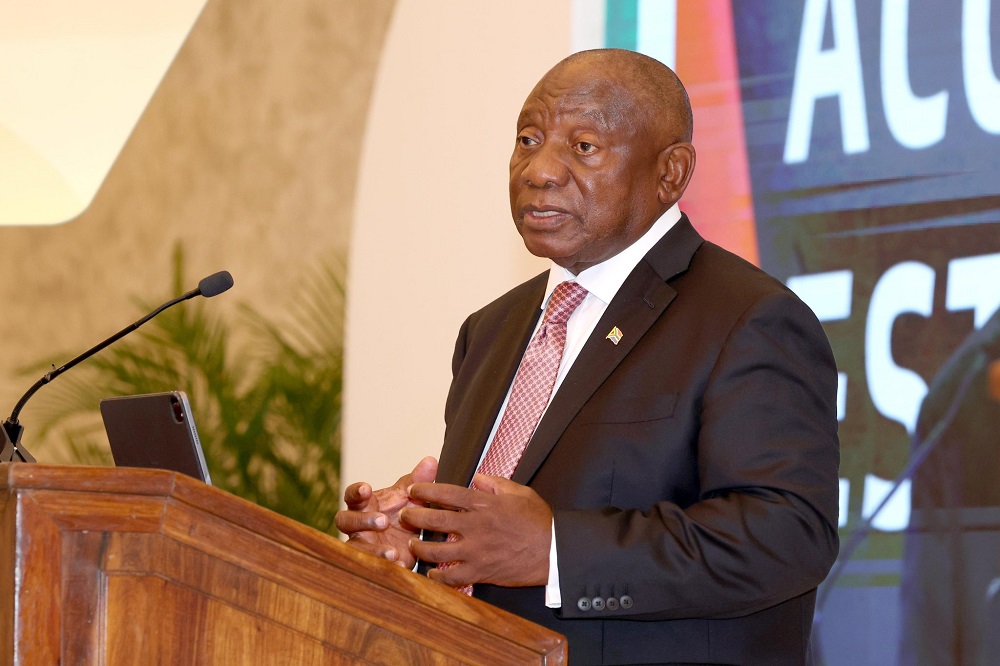-
FILE| South African rand notes.
Senior legal counsels representing some local and international banks accused of colluding to manipulate the rand say the Competition Commission has failed to make a solid case regarding their participation in collusive behaviour.
They argue that the alleged overarching conspiracy to manipulate the rand/dollar exchange rate must demonstrate that they had prior knowledge of the plan and expressed intent to participate.
The commission is making an appeal to the Constitutional Court to overturn a previous judgment that excluded foreign banks from the rand rigging case.
Around 17 foreign banks implicated in the rand rigging case have maintained that the regulator has failed to show that there is a case for personal jurisdiction or adequate connecting factors between the foreign banks and local banks to justify collusion.
Bank of America Senior Counsel Paul Farlam argued that foreign banks should not be implicated in rand rigging merely for being members of the instant Bloomberg chatroom where traders allegedly conspired to do so.
Farlam says, “Their argument is that because we’re all in a chatroom we knew or were regarded as knowing that there was a worldwide SOC (Security Operations Center) involving South African traders and we submit that if the chatroom has good and bad or malign, and benign purposes involved in trading a number of different currencies, you can’t wish to conclude that because you joined the chatroom you had malicious intent.”
Nedbank’s legal representative, Senior Counsel Anthony Gotz, stressed that the bank is merely implicated in a Reuters trading platform that is noted as sharing similarities with the Bloomberg chatroom in question.
Gortz emphasised that the quotes posted by Nedbank on the Reuters public platform were much too sporadic to constitute collusive behaviour.
He says, “What we see is that the case against Nedbank is based on sporadic allegations of cryptic market conduct that the commission has effectively thumb sucked based on a set of trading data. The record itself does not say a particular bank is withholding quotes.”
Gortz says, “ The commission does not put Nedbank in any of the chatrooms, it does not allege that there was any contact, communication, agreeing, concertation and sharing of information between Nedbank and any of the other respondents.”
Collusive behaviour
Australian New Zealand Banking Group (ANZ) claims that the traders implicated for collusive behaviour were not employed by the bank at the time of the alleged misconduct.
ANZ’s Senior Counsel Chris Loxon says, “Katz is said to be employed from 2013 onwards, Tezo until 2012. The problem that they have with Katz is that the last identified chat in which Katz is involved is October 2012, before he gets employed by ANZ.”
The commission argues that the Competition Act allows local authorities to act against anyone whose conduct impacts the South African economy, regardless of their jurisdiction.
Head of Cartels at the Competition Commission, Makgale Mohlala says, “We made it very clear that other jurisdictions, Americans have prosecuted traders for manipulating the dollar, the British have done the same for manipulating the pound, so have the Europeans for the euro and lately the Australians for the South African rand.”
Mohlala says, “No one has prosecuted anyone for the manipulation of the South African rand and the Competition Commission, and the (Competition) Tribunal are the authorities vested with the responsibility of prosecuting such conduct.”
The currency manipulation case will enter its third day of proceedings on Thursday at the Constitutional Court.
VIDEO | Competition Commission approaches ConCourt over bank price-fixing:











